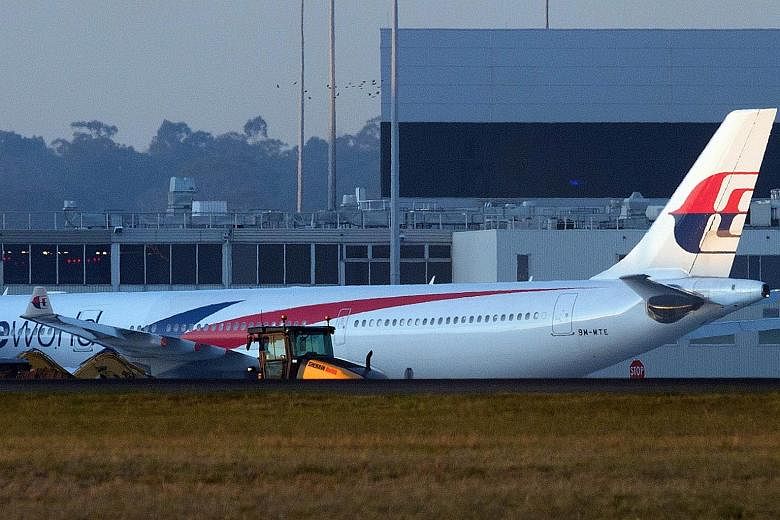Airlines that have asked for more time to comply with a global push for aircraft to be tracked every 15 minutes when flying over ocean and remote areas may not get it.
The International Civil Aviation Organisation (ICAO), a United Nations agency spearheading the initiative following the disappearance of a Malaysia Airlines flight in March last year, is determined to push the agenda through, said its secretary-general Raymond Benjamin.
He told The Straits Times last Friday that the plan is on track for the 15-minute requirement to be endorsed and adopted by the ICAO before the end of the year, and implemented within two or three years.
Once adopted, it is the responsibility of all 191 ICAO member states to ensure that the deadline is met, he stressed.
More than 16 months after Flight MH370 flying from Kuala Lumpur to Beijing went missing and presumably crashed in the Indian Ocean, the aircraft has still not been found.
The International Air Transport Association (Iata), which represents global carriers, supports better tracking but said while many new aircraft have equipment that enables them to be tracked by satellite, older aircraft do not.
Iata's director-general Tony Tyler raised the matter at an industry conference in Miami in the US last month, but did not specify the carriers which were unlikely to be able to meet the requirements.
The industry has also not said how much more time it would need, said Mr Benjamin.
For many long-haul carriers, including Singapore Airlines, meeting the 15-minute tracking requirement would not require any major aircraft retrofitting, industry experts said.
The challenge is for airlines - many based in poorer countries in Africa, for example - that operate older planes.
Acknowledging that the exercise could be a "costly" affair for some, Mr Benjamin seemed to hint that exceptions may be made.
"If you are not flying over remote areas or oceans... we will see how the discussions go. Responses from states will be considered," he said.
Apart from regular aircraft tracking, ICAO is also pushing for states and other agencies to share intelligence and other relevant information so airlines can assess the risks when flying in conflict zones.
The initiative, in the wake of another Malaysia Airlines flight shot down in Ukraine a year ago, has culminated in an online portal that travellers, airlines and other stakeholders can access for data on flight restrictions and conflict zones.
Even as it takes a more active role in pushing for safety and security standards to be implemented, ICAO said it would provide the required support for countries that need assistance.
Mr Benjamin said: "They have the political will but no means, which is why we now have this slogan of 'no country left behind'."
Karamjit Kaur

